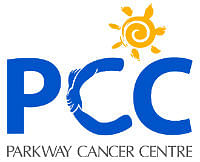
What is colorectal cancer and how seriously should we take it?
Colorectal cancer is cancer that occurs in the colon or rectum.
What happens is that normal cells in the lining of the colon or rectum begin to change and grow without control. The reason for this abnormal growth is an interaction of genetic abnormality and environmental factors.
Typically, it starts out as a non-cancerous polyp that becomes a cancerous tumour over time.
In Singapore, colorectal cancer or colon cancer is the second most common cause of death among men and the third most common among women, so it is pretty serious.
Who is most vulnerable to colon cancer?
It is diagnosed mostly in people who are over the age of 50 although it can occur at any age.
In Singapore, it is more common among the Chinese than with the other racial groups. It is also more common in men than in women.
What are the symptoms of colon cancer?
One common symptom is rectal bleeding. Blood appears with the stools and can be accompanied by constipation. However, bleeding due to a tumour inside the colon or rectum can be confused with bleeding from haemorrhoids. It is hard to tell the difference.
Another symptom is change in bowel habit, with either constipation or more frequent bowel movements or alternating diarrhoea with constipation.
Another sign is unexplained anaemia. The person looks pale, feels easily fatigued, and is unusually breathless after moderate exertion. He complains of tiredness and may experience unexplained weight loss.
How can screening make a difference?
Colorectal cancer displays no symptoms in the early stages so we can only detect it by screening.
Since colorectal cancer develops from polyps, we surgically remove polyps we find to prevent colorectal cancer.
With colorectal cancer, the five-year survival rate for people with Stage 1 cancer is between 85 to 95 per cent. At Stage 4 on the other hand, the survival rate is less than five per cent. If you catch it early, your chances of survival are very good.
Be aware of the symptoms, mainly, change in bowel habits, bleeding while using the toilet, loss of weight and appetite.
Seek treatment early
Cut down on fat in the diet. Take more fruits and vegetables in the diet and exercise regularly.
-
Beat the disease
-
Be aware of the symptoms, mainly, change in bowel habits, bleeding while using the toilet, loss of weight and appetite.
Seek treatment early.
Cut down on fat in the diet. Take more fruits and vegetables in the diet and exercise regularly.
How is the screening done?
The most basic screening is the faecal occult blood test (FOBT). This is a simple test to check if there is occult blood in your stools.
A FOBT test for blood in the stool is a simple and non-invasive test. If you are above 50, you should have an annual FOBT. You can schedule for an FOBT easily with your family physician or neighbourhood polyclinic.
In addition, you should do a colonoscopy every 10 years. A colonoscopy is a specialist procedure done in hospitals using a flexible fibre-optic tube called a colonoscopy to look at the internal lining of the colon and rectum. It also allows for interventions such as a polypectomy (removal of a polyp) or biopsies to be done at the same time.
Colonoscopy sounds painful. Is it?
The colonoscopy usually takes about 15 minutes and most people won't suffer because it is done under light sedation.
The most uncomfortable part is probably what happens the night before. Before a colonoscopy, the bowels have to be "cleaned" or emptied. As a result, on the evening before the colonoscopy, the patient has to drink two litres of water laced with medication to induce diarrhoea.
Is a colonoscopy a risky procedure?
It has a less than 0.5 per cent risk of damage or perforation to the wall of the colon so it is very safe.
What can we do to lower our risk of getting colon cancer?
If you want lower your risk, two things you can do is to cut down on drinking alcohol and to quit smoking.
Among moderate drinkers, the risk of getting colorectal cancer is 20 per cent more compared with non-drinkers. If you are a heavy drinker, your risk increases by 50 per cent. If you are a smoker, you have an 18 per cent higher risk of developing colorectal cancer and a 25 per cent higher risk of dying from cancer compared to a non-smoker.
Changing your diet and exercising can also reduce your risk. If you like high-fat diets, like fast foods or eating fat meat, you are going to be more susceptible to cancers of the colon, uterus and prostate. You should move to a diet with more fruits and vegetables.
Red meat, especially those cooked at high temperatures, is something to avoid. In addition, you should also lose weight if you are obese.
Studies have shown that obese people have a 1.5 fold increase in the risk of developing colorectal cancer compared to people of normal weight. I would recommend that you lose weight by exercising.
Regular exercise can actually reduce your risk by 20 per cent. As a side benefit, physical activity also reduces the risk of developing breast cancer as well as an aggressive type of prostate cancer. In short, to lower your risk of colon cancer, drink less, quit smoking, lose weight and exercise.
Find out more about cancer and how to fight it on ST's Fighting Cancer microsite.
